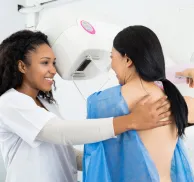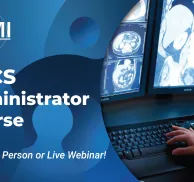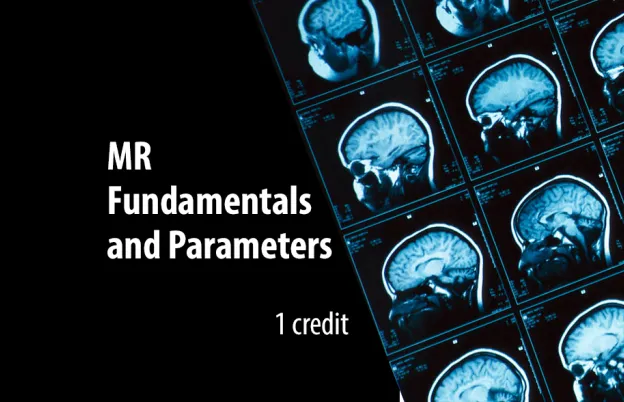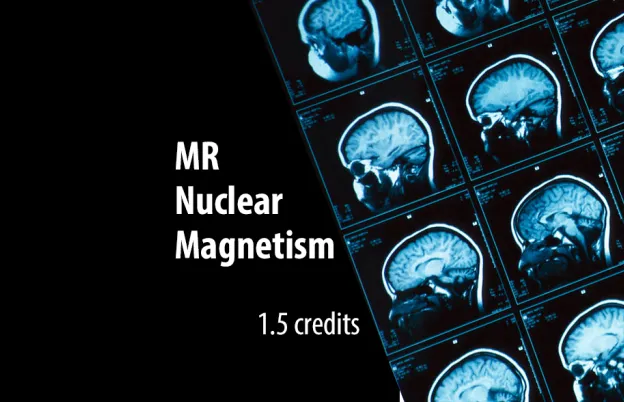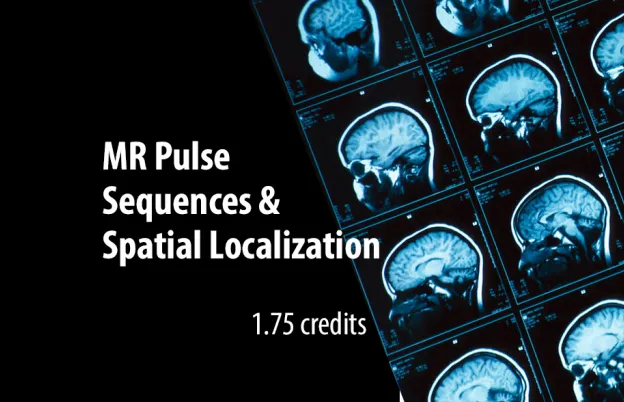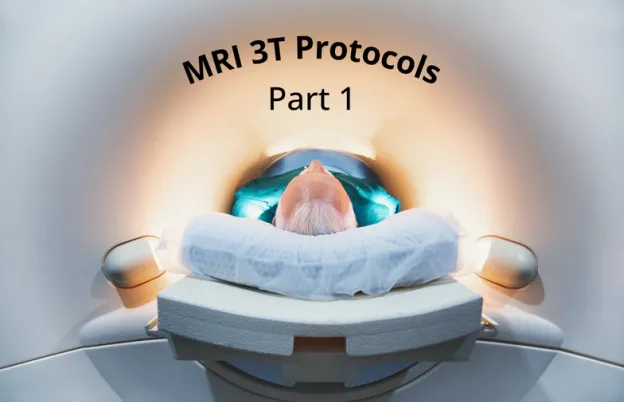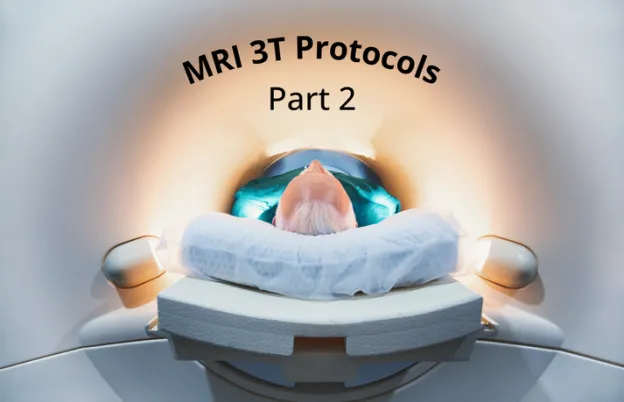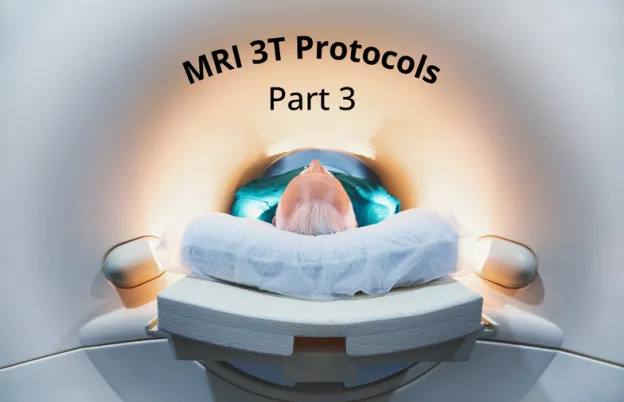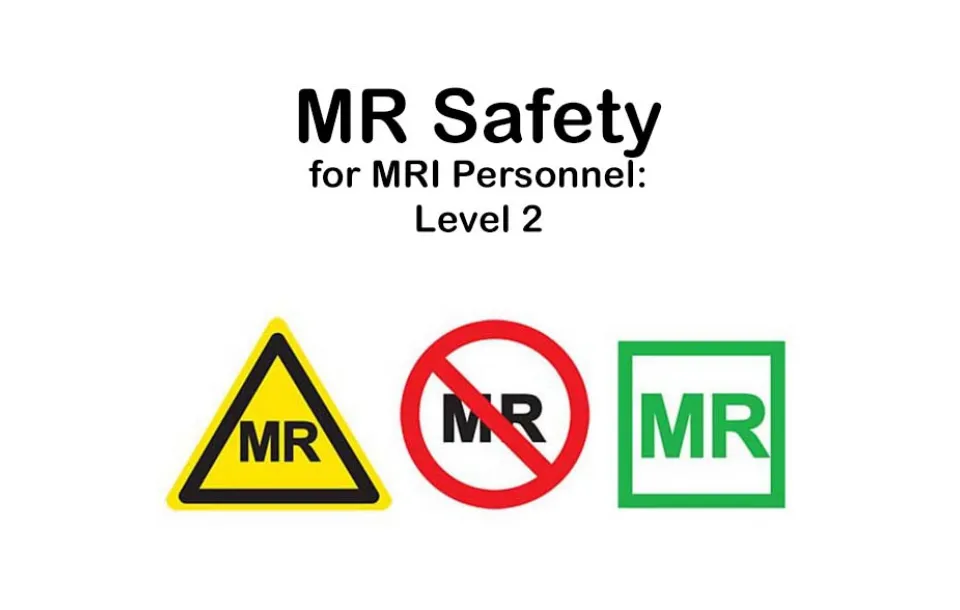
MR Safety Level 2- SUNY
Credits
- 2.25 ASRT Category A
About this Program
This program will provide an overview of the MR Safety Practice Guidelines published by the American College of Radiology (ACR). The ACR MR Safe Practice Guidelines established de facto industry standards for safe and responsible practices in clinical and research MR environment. This program is appropriate for MR Safety for MRI Personnel – Level 2.
Agenda
Intro (Ryan)
- History of MRI safety movement
- MRI incidents/statistics
Static Magnetic Field (Max)
- Biological effects
- Translation
- Spatial Gradients
- Torque
- Lenz Forces
- Zoning/Signage
- MR Personnel
- Screening/Ferromagnetic Detection
- Police/Firefighters/Emergency Response Personnel
- Object/Device Labeling
Time Varying Gradients (Max)
- Acoustic Noise/Hearing Protection
- Peripheral Nerve Stimulation
- TVG Operating Modes
- Induced Voltages
Radiofrequency Field (Ryan)
- SAR/SED/B1+rms
- Reducing SAR/B1+rms
- Types of RF burns
- Other RF considerations
Emergency Procedures (Max)
- Allergic Reactions
- Cryogens/Quench
Implant Conditions (Ryan)
- Static Magnetic Field
- Time Varying Gradients
- Radiofrequency Field
- Time Restraints
- RF Transmission
- Implant Configuration
- Misc
Cardiac Devices (Ryan)
- Pacemakers/Defibrillators/CRT
- Cardiology Requirements
- Patient Monitoring
- Scan Conditions
- Workflow
Educational Objectives
At the completion of this program, participants will:
- Understand the safety standards and risks posed by the static magnetic field
- Understand the safety standards and risks posed by the time varying gradients
- Understand the safety standards and risks posed by the radiofrequency field
- Understand how to deal with medical emergencies in MRI
- Understand the risks posed by the cyrogens
- Evaluate and understand implant conditions
How it Works:
- Your On Demand CE activity that you purchased will be located in your “My Account” section once you log into the MTMI Website.
- You have three attempts to pass each quiz.
- You must earn a score of 75 % or higher.
- Credit is recorded the day you submit and pass the quiz and is determined using Central time.
- You have 30 days to complete and pass the quiz.
- Once passed, access your MTMI “My Account” to print your “Certificate of Completion.”
- Evaluate and understand MR Conditional active cardiac devices
Program Faculty
Meet your presenter(s)

Ryan Draeger
BSRT (R)(CT)(MR) ARRT MRSO (MRSC) MRSE (MRSC)
Ryan Draeger is a Clinical Application Specialist at Canon Medical Systems USA. He has worked extensively in MRI and MRI education, specializing as an MRI Safety Officer and MRI Safety Expert through the American Board of Magnetic Resonance Safety. Ryan has spent a good deal of his career on protocol optimization for scanning difficult implants in MRI was well as educating others on how to do the same.

Max Amurao
PhD, MBA, DABR(D,N), MRSE, CMLSO
Max Amurao has been in the Medical Physics and Radiation/Magnet/Laser Safety field for over 20 years. In addition to being heavily involved in Medical Physics education, his clinical practice encompasses Diagnostic Medical Physics, Nuclear Medical Physics, Therapeutic Medical Physics, Radiation and MRI Safety, as well as Laser Safety.
He is a certified Diagnostic Medical Physicist (DABR), Nuclear Medical Physicist (DABR), Medical Laser Safety Officer (CMLSO), Magnetic Resonance Safety Officer (MRSO), Magnetic Resonance Safety Expert (MRSE), and a Health and Safety Professional (CHSP).
Max is based in South Florida and serves as the Executive Director of the Radiation Control program for the University of Miami, University of Miami Health System, and Jackson Health System.
Credits
Accredited training programs
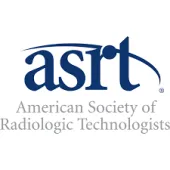
ASRT Category A
This program provides 2.25 hour(s) of Category A continuing education credit for radiologic technologists approved by ASRT and recognized by the ARRT® and various licensure states. Category A credit is also recognized for CE credit in Canada. You must attend the entire program to receive your certificate of completion.
